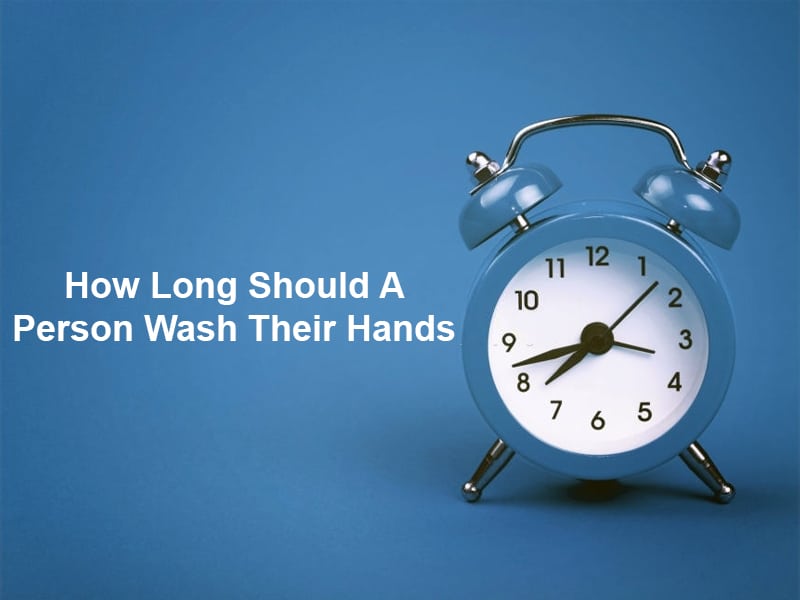Exact Answer: At least 20 seconds
Handwashing offers a great perk in terms of preventing illness. So, if we adopt this habit it will protect our health. Since a healthy body makes your immune system strong. It has always been an important defense against bacteria and viruses that can be transmitted through touch.
During the Co-vid situation, you are being recommended that you should wash your hands frequently and cover your face with a mask. So, to stop the spread of germs wash your hands properly and vigorously.

When Should A Person Wash Their Hands That Long?
- Touching surfaces that are frequently touched
- Visited a public place
- Using toilets and bathrooms
- After taking care of your pets
- Before and after cooking foods
- After sneezing and coughing
- After throwing garbage
- After coming from the hospital
- After changing the diapers
- Before and after eating foods
- Before touching your eyes, nose (or we can say face)
How Long Should A Person Wash Their Hands?
| Type of Work | Time for Handwash |
| For surgical | 10 minutes |
| During co-vid | 20-30 seconds |
| Before or after making foods | 2o seconds |
Why Should a Person Wash His Hands That Long?
Germs can be spread by many ways,
- Touching the dirty hands of someone
- Contaminated water or food
- Droplets present in the air (when someone cough or sneezed)
- Contact with a person who is sick
The disease-causing germs or viruses or bacteria can affect our whole body so it becomes necessary to kill them so handwashing. Handwashing is an important defense tool. As soap bubble forms the micelles that trap the dirt, oil, etc., washing hands removes all. Washing your hands properly prevents the introduction of viruses into the respiratory tract or sensory organs like the eyes or nose. If you want to know how long you should wash your hands, it depends on how frequently you and your family get sick.
First of all you can’t carry hand wash so you can take a sanitizer with yourself. Wherever necessary use it. Steps how to wash your hands:
- Turn on the water and wet your hands. As it produces a good lather.
- Use soap, liquid hand-washer, etc. on your wet hands.
- The lather is so produce spread it up to your wrist.
- Rub your hands for 20 seconds and also in between your fingers.
- Rinse your hands properly and then dry your hands with a clean towel.
Conclusion
In general, both sanitizer and soap if used correctly, are effective at killing germs and pathogens. If your hands look dirty wash them properly with soap and water. Here, hand sanitizer becomes ineffective. Sanitizer is convenient when used outside the home.
There are no added benefits for using antibacterial soap versus the plain kind, this is according to the Centers for Disease Control and Prevention as it doesn’t necessarily kill more germs than regular soap. Germs can be transferred more easily to and from wet hands. so it is necessary to make them dried after washing.
Since as known by everyone heat kills bacteria so to assume that hot water would be better for handwashing has no logic as experts say there is no difference between the two of the water. We can use any temperature of water to wash our hands. Both cold and hot water is equally effective at the killing of germs and viruses till we use soap or hand-washer.
If you run out of soap then still wash the hands with water (at least it will clean the dirty hands). In a 2011 study, it is shown that washing without soap is also helpful.
Washing the hands is an easy way to stop the spread of germs and so controllable.
Good handwashing prevents many illnesses – from the common cold to chronic infections like hepatitis A, the flu, and many types of diarrhea.